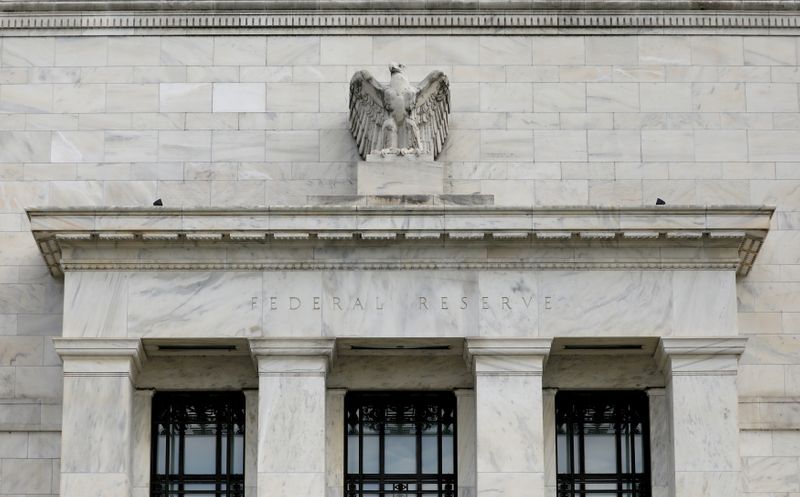By Jonnelle Marte
(Reuters) - The U.S. Federal Reserve in coming months may need to adjust the tools used to keep its benchmark policy rate well within its intended range if open market overnight borrowing costs keep drifting lower, a readout of the central bank's latest meeting signaled on Wednesday.
Policymakers also received a detailed briefing last month on the pros and cons of making the support they provide to money markets permanent, according to the minutes.
The central bank began intervening in overnight lending markets in September 2019, when a shortage of reserves led to a spike in short-term borrowing rates. But in recent weeks markets have been plagued by the opposite problem: too much cash.
Firms swimming in excess reserves are flocking to the New York Fed's facility for reverse repurchase agreements, or reverse repo, which gives them a place to temporarily park their cash.
Money market funds and other eligible firms placed $294 billion in cash with the Fed overnight on Wednesday, up from about $100 billion at the time of the meeting and topping the levels reached in March 2020 at the start of the coronavirus pandemic.
The Fed could consider adjusting administered rates "in coming months" if the downward pressure on overnight rates continues, Lorie Logan, manager of the System Open Market Account, told policymakers.
The central bank could respond by raising the interest it pays banks for excess reserves (IOER) from 0.10% or adjusting the rate it pays on overnight reverse repo for non-banks, which is currently at 0%.
MONEY MARKET SUPPORT
In a detailed discussion of the Fed's efforts to bolster money markets, policymakers also went over the potential benefits and risks of making that support permanent through a standing facility that financial firms can tap as needed.

"Many participants" noted that a standing repo facility could provide a way for the central bank to automatically respond to market pressures, which can be difficult to predict. Still, a "couple" of participants said the Fed could save money by conducting repo operations on short notice as needed.
Policymakers previously discussed making the arrangement permanent at the October 2019 meeting but decided to wait, citing questions over what rate should be charged and which firms should be eligible. Some of those questions were also raised last month.